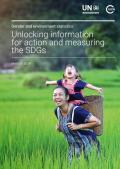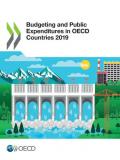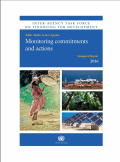This report, Inclusive Climate-Smart Finance – Reaching those most in need shows how properly designed and executed climate-smart finance mechanisms can address socio-political imbalances that reduce communities' resilience to the impacts of climate change and can help redress gender imbalances.
This Policy Paper, Sustainable Connectivity: Closing the gender gap in infrastructure shows how women and men may use infrastructure differently according to their needs, social roles or preferences.

This report proposes 18 gender-environment indicators for inclusion in the wider set of gender indicators across the following focal areas: rights to land, natural resources, and biodiversity; access to food, energy, water, and sanitation; climate change, sustainable production and consumption, and health; and women in environmental decision making at all levels.

This report provides a comprehensive view of practices and developments in the governance, implementation and performance of budgeting across OECD countries. It looks at recent practices such as the application of medium-term frameworks and the use of data and analytics to highlight the impacts of policies on concerns such as gender equality and the environment.

The Inaugural 2016 Report: Monitoring commitments and actions, is the first edition of the report of the Inter-agency Task Force on Financing for Development that maps out the commitments and action items contained in the Addis Ababa Action Agenda.
